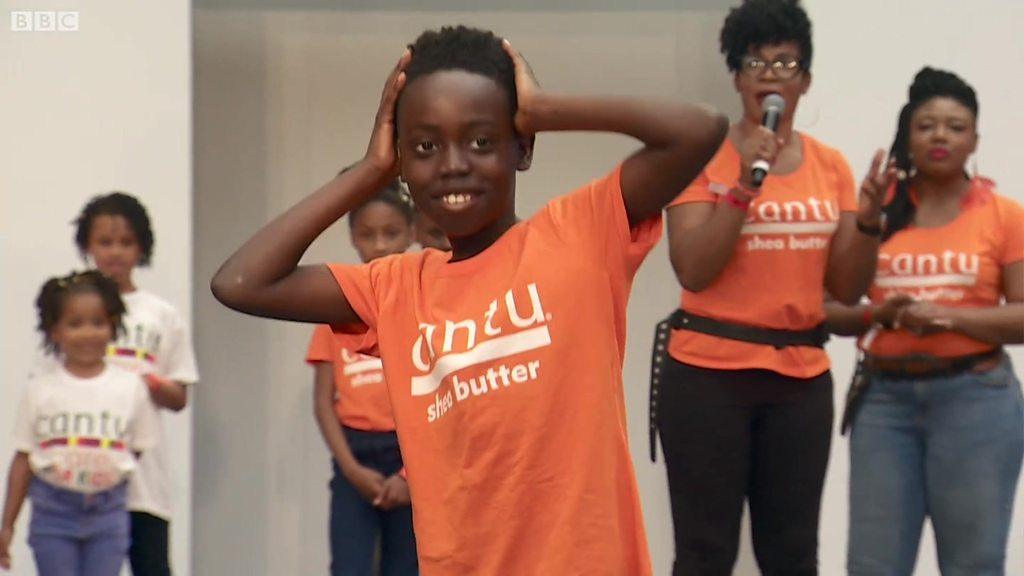Halo Code: Black hair guide launched to stop discrimination
- Published
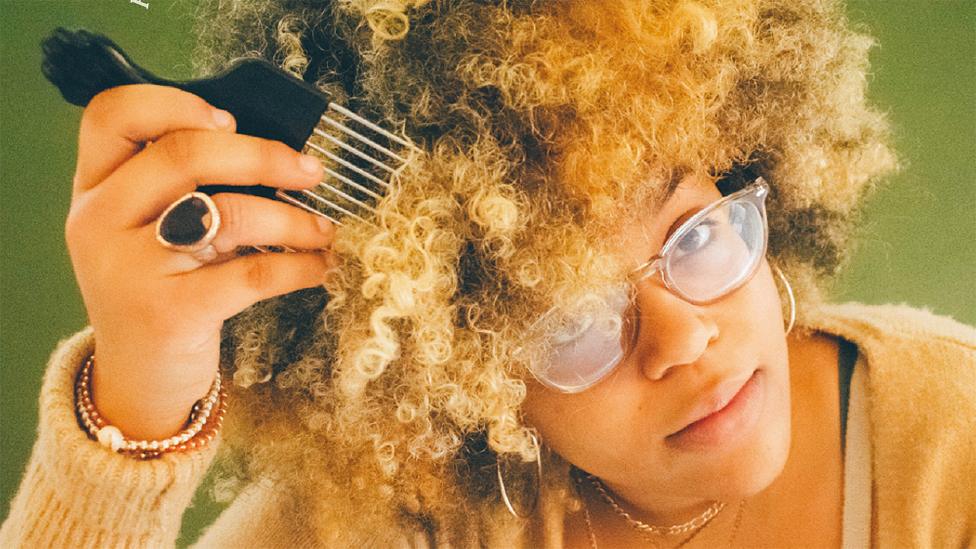
Katiann says people making comments about black people's hair "can really knock us down"
"The main pressure that we feel is the need to chip away pieces of our identity, just to feel like we belong."
Katiann Rocha has experienced discrimination because of her hair, often hearing comments such as "messy", "unkempt" and "wild".
The 16-year-old is a co-founder of the Halo Code - a guide for schools and workplaces to prevent discrimination around hairstyles or texture.
"It will allow for black people to be fully accepted in an environment that celebrates their natural hair and styles, because we've been discriminated against it for so long," she tells Radio 1 Newsbeat.
The Halo Code explicitly protects students and staff at school and work with natural hair and protective hairstyles associated with their racial, ethnic and cultural identities.
It has already been adopted by one of the UK's biggest employers, Unilever, which has pledged to protect workers with afros and dreadlocks.
'Break your confidence'
Katiann, based in London, describes the "driving force" behind the campaign as the "lived experience of every member of the Halo Collective" - the group working to create a future without hair discrimination.
She says until recently, she'd never really been comfortable with her hair.
"Because people would make comments about it," she tells Newsbeat. "They would call it wild and messy, tell me to grab a comb and try to force me to wear much more Eurocentric hairstyles."
I May Destroy You star supports black hair code
Katiann said she would get sent to the back of the class and told by teachers her afro was "too big and too distracting for my classmates".
"It can really break your confidence. Especially as a young black woman in today's society, it takes a lot for us to be our whole selves and to feel as if we're accepted.
"So when people make comments about our hair, something that is so dear to us and a key part of our identity, it can really knock us down," she adds.
Katiann says the main aim behind the Halo Code is to remove stigma and "take down that extra barrier".
"Worrying about our hairstyle, I can't even begin to explain how much time it takes out of our learning, trying to put your head into a hairstyle that your school is going to deem professional and acceptable."
She feels a lot of schools "claim they're accepting of all cultures", but they "bar us [black students] from expressing ourselves".
"A lot of words they will use is we can't have hairstyles that are 'wild'. But someone in school will have blonde, dyed hair, wild colours, while for me to have a naturally coloured afro would be considered distracting.
"So it's really a case of us constantly feeling like we're out of the loop and our school environments do not accept us for what we are," she adds.
Having a major company such as Unilever adopt the code gives Katiann a lot of hope.
Richard Sharp, HR vice-president of Unilever UK & Ireland, told Newsbeat: "We know it's really important for people to be able to be themselves in the workplace.
"We believe the individuality of hair should be celebrated, which is why we are supporting and communicating the Halo Code to our people, and believe it is a vital step in the fight to ensure racial justice and racial equity for the next generation."
"You don't need to look like anybody else."
Katiann hopes that means other schools and workplaces will be inspired to take that "first step to change and make their employees feel accepted".
"We want this code to extend into every aspect of our lives," she says.
"We just want black students and black people to feel as if they're accepted and celebrated for who they are."


Follow Newsbeat on Instagram, external, Facebook, external, Twitter, external and YouTube, external.
- Published10 December 2020
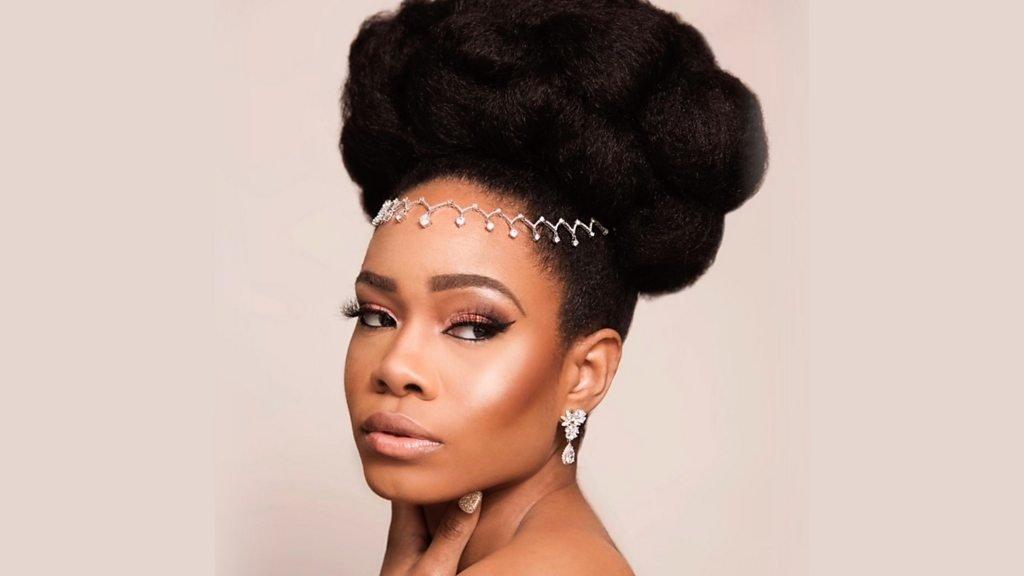
- Published12 September 2018
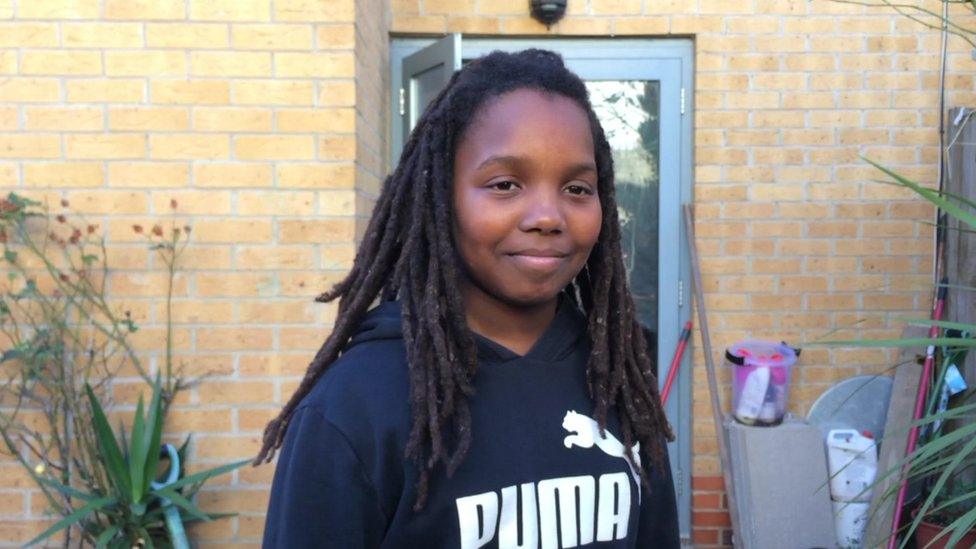
- Published10 February 2020
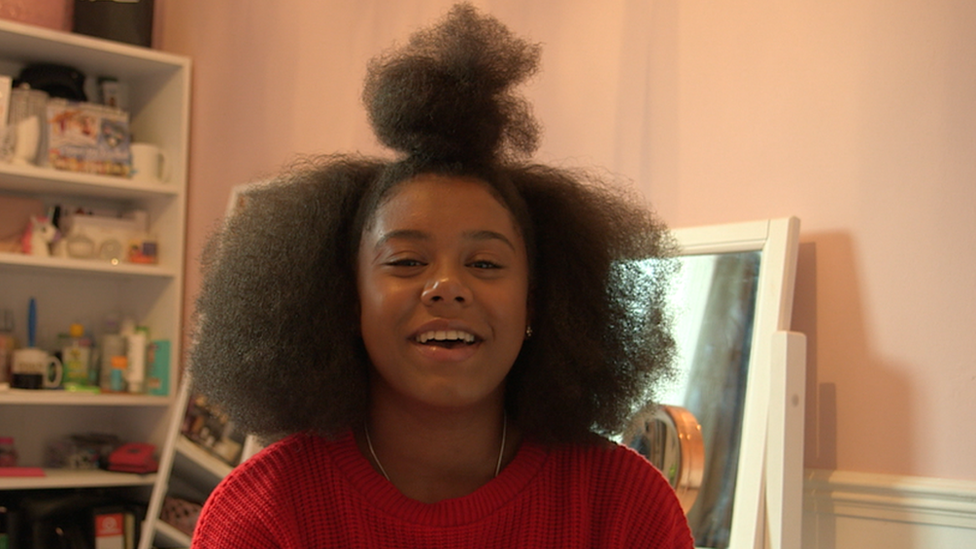
- Published14 September 2018
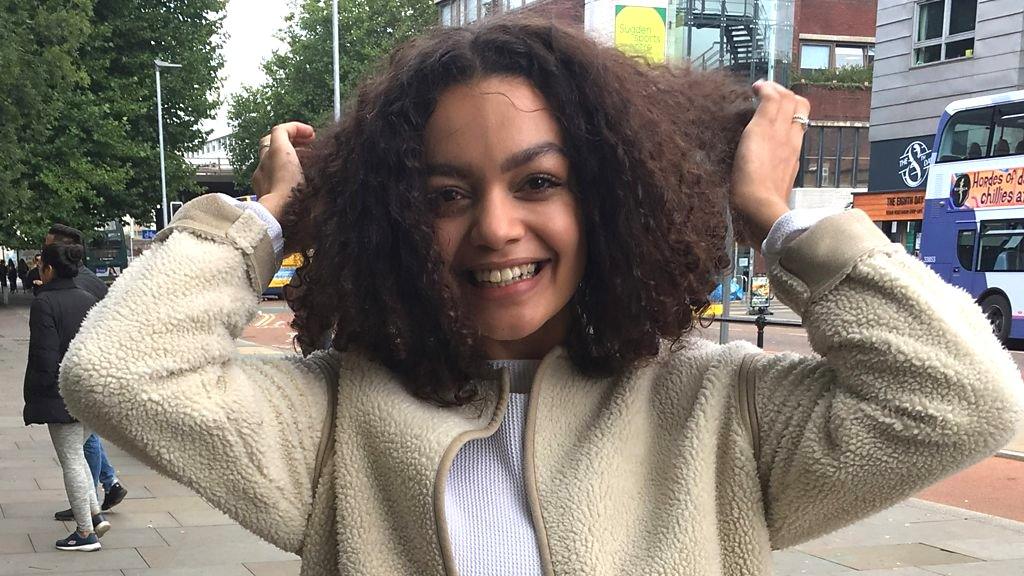
- Published5 October 2018
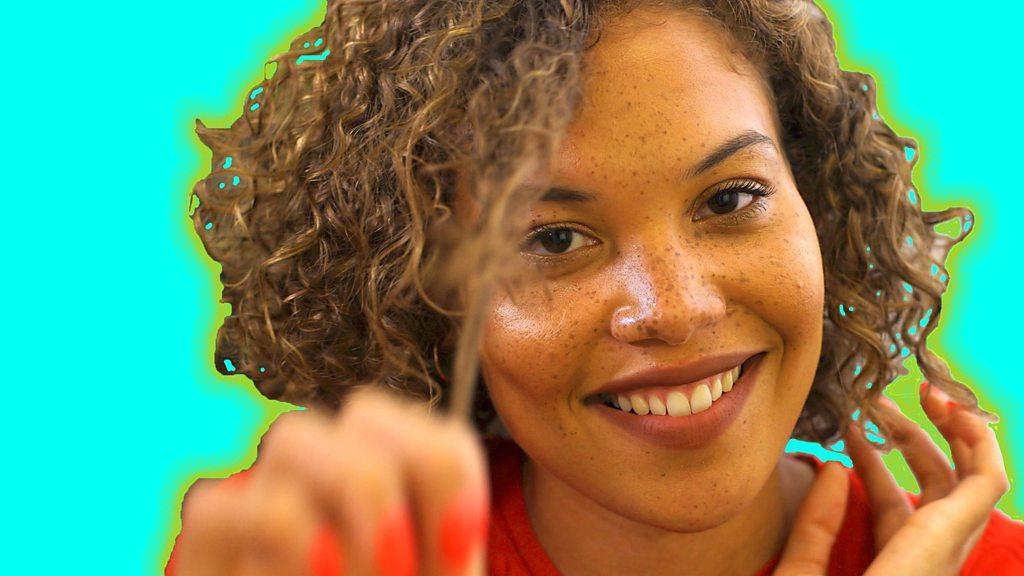
- Published27 June 2018
